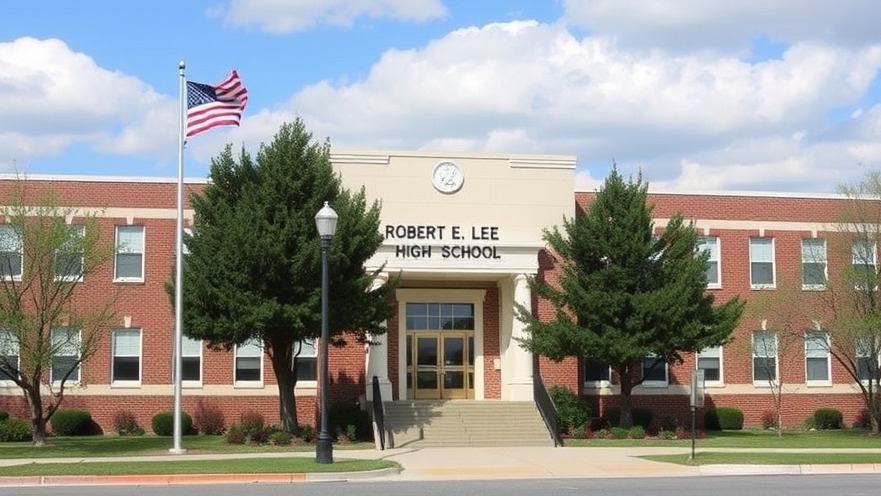
Controversy Revives Over Confederate Symbolism
In a West Texas town, the discussions surrounding the name of Midland's local high school are symbolic of a larger national dialogue grappling with how society remembers its past. After a decision five years ago to rename the school from Robert E. Lee High to Legacy High amidst a nationwide move to erase symbols associated with the Confederacy, the school board is once again considering reverting the name. This decision, driven by a newly elected board member, Josh Guinn, reflects a shift in public sentiment and ties closely to the ongoing cultural debates in the U.S.
Community Perspectives: Weighing Pride Against History
At the heart of this debate are the voices of local families. La’Toya Mayberry, a mother of two high-achieving daughters, voiced her concerns about the implications of restoring the name associated with a Confederate general. She stresses the message this sends to athletes like her daughter who represent their school: a name tied to a past of inequality is not one that should be worn proudly. While some alumni insist that the name Lee represents local pride rooted in sports achievements, others argue that it risks alienating segments of the community that feel historically marginalized.
The Wider Context: National Trends and Local Actions
The Midland school district's situation is not isolated; it fits into a larger pattern seen across the nation where symbols and memorials linked to Confederacy are reconsidered. Many public institutions have faced pressure to rename buildings or remove statues representing divisive figures in history. As movements like Black Lives Matter have gathered momentum, community discussions on racial equity have surfaced, challenging long-held traditions in places like Midland.
Shifting Societal Narratives
The changing public opinion concerning Confederate symbols has been exacerbated by political currents and cultural movements. Recently, the landscape has shifted dramatically, with rhetoric around 'wokeness' intensifying—as noted with President Trump's actions to restore Confederate names to military bases. The question of who and what should be remembered in public spaces continues to ignite heated discussions across Texas and beyond.
Understanding the Implications of Renaming
Understanding the motivations behind naming decisions is crucial. Proponents like Guinn purport that naming the school after Lee revives a sense of unity and local identity; for them, the name is divorced from its historical implications. However, many in the community frame it differently, believing that history cannot—and should not—be swept under the rug. They argue that publicly recognizing the legacy of individuals like Lee reinforces oppressive histories for marginalized groups. The challenge lies in bridging these perspectives in a way that fosters reconciliation rather than division.
Grappling With the Future: Who Gets Remembered?
As Midland weighs its options, it also has to take into account the ramifications of its decision. While a name might evoke nostalgia for some, it can represent an exclusionary past for others. The repeated cycles of renaming schools and public spaces raise the question: who are we willing to honor, and at what cost? This local debate mirrors that of many communities grappling with their identities as they enter a new era of understanding and inclusivity.
Call to Action: Engaging in the Conversation
As Midland's community prepares for the potential reversion back to Lee High, residents are urged to engage in thoughtful discussion about the implications of their choices. How can they honor their local history while acknowledging the painful parts of it? It's an essential dialogue for not just Midland, but for all communities learning to navigate their shared pasts.
 Add Element
Add Element  Add Row
Add Row 



Write A Comment